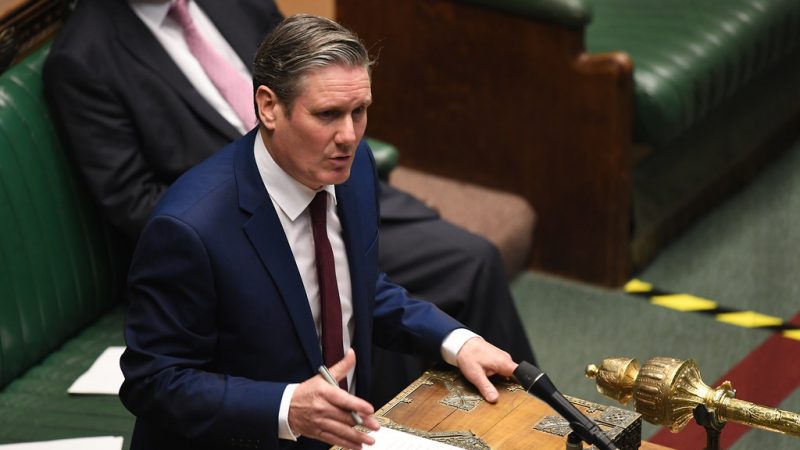Seats which didn't feature in Blair's landslides are now in play

How far will the Tories fall when Rishi Sunak eventually summons the courage to call an election?
Predictions range from the merely dire to the catastrophic. Last week YouGov released data which pointed to a 120 seat majority for Keir Starmer, while wilder suggestions include the possibility that Britain’s Conservatives could face a wipeout akin to their Canadian counterparts in 1993, when the latter collapsed from majority government to a total of two seats.
Whatever else is true Labour continues to lead the polls by a substantial margin, Sunak appears incapable both of managing his party and finding any way to convince the public of his ability to lead a Government or fix the ailing economy and public services, and Labour grows more confident by the week.
One welcome outcome is that Labour is looking beyond its traditional comfort zone to seats that previous leaderships would have ignored due to demographics, wealth, location or history.
As Labour prepares to contest the coming Kingswood by-election, caused by the resignation of former Tory Minister Chris Skidmore, Rachel Reeves is set to highlight increased mortgage costs – and their cause in the governments of Liz Truss and Sunak – to help the party appeal to middle class homeowners newly aghast at Tory economic failure and its impact on their own incomes.
Labour have gone so far as to conduct an analysis of rising mortgage costs in 42 constituencies seen as in the blue wall, a Lib Dem-coined term for relatively affluent seats, generally Tory held and often in commuter belts around cities. While the average monthly repayment for families formerly on fixed-term mortgages has risen by £240, given higher average house prices in blue wall seats the average for these areas is more like £385.
As well as highlighting the continued repercussions of the fiscal crisis sparked by Liz Truss’s brief time in government, the choice of blue wall constituencies for the analysis, including top Lib Dem targets such as Esher and Walton, Wimbledon and Winchester, shows renewed Labour confidence that they can attract centrist Conservatives.
One immediate result is that the unspoken truce that has held between Labour and the Liberal Democrats when it came to by-elections – and by extension the General Election campaign – appears to be over.
A Labour source said last year’s Mid Bedfordshire byelection, where the party saw off a strong Lib Dem challenge to take the formerly firm Conservative seat, showed there were now “no no-go areas for us”.
“In Mid Beds we could have rolled out the yellow carpet and told the Lib Dems: ‘We’ll leave you to it.’ But we fought them and won. It shows how far we have come since 2019. The job for Rachel and Keir has been to convince voters they can trust us on the economy, that we take fiscal discipline seriously.”
One welcome result could be Labour taking seriously the needs and votes of rural communities, something which organisations such as Labour Coast and Country have long argued for. The criticism has been that Labour hasn’t won the rural vote because it hasn’t tried to – something which appears at last to be changing.
Labour will be helped by the Government’s failure to support farmers and agricultural communities through the Brexit transition, despite many of the current Government having made grandiose promises to them in the 2016 Vote Leave campaign and the 2019 election.
British farmers have faced surging and fluctuating input costs from the war in Ukraine, the phasing-out of an EU subsidies which helped sustain their income, post-Brexit labour shortages and the anxiety of Britain’s newly enforced free-trade deals with Australia and New Zealand, which will gradually liberalize imports of beef and lamb into the UK.
A mid-2023 YouGov poll for the Times found the Tories just two points ahead of Labour in rural areas, sliding from a 32% in 2019. As time goes on and rural areas suffer more from post Brexit and cost of living failures those figures are only likely to get worse for the Tories, which could bring seats into play for Labour which would have been inconceivable as recently as 2019, and which didn’t feature even in Tony Blair’s landslides.
The question is where this leaves the Liberal Democrats. If their use in years when Labour was doing well was to pick off Tory MPs in areas where Labour could not reach, but now Labour can, and is newly willing to try, there may be slimmer pickings for Ed Davey’s party than he and his colleagues had hoped.
The worst case scenario for Labour is that this could split the anti-Tory vote, saving Tory MPs in the process and endangering its path to a majority. But given this fear was unrealised in Mid Bedfordshire Labour may be willing to take the risk.
The end result is a resurgent Labour Party, seemingly willing to believe the polls and go for broke in winning seats and votes on its old stomping ground and in areas once seen as off limits. That could spell doom for Tory MPs who under New Labour may have felt personally secure, and will may pull the rug out from under Liberal Democrat election strategists.
Mike Buckley is the director of the Independent Commission on UK-EU Relations and a former Labour Party adviser
Image credit: Jessica Taylor / UK Parliament – Creative Commons
Left Foot Forward doesn't have the backing of big business or billionaires. We rely on the kind and generous support of ordinary people like you.
You can support hard-hitting journalism that holds the right to account, provides a forum for debate among progressives, and covers the stories the rest of the media ignore. Donate today.



